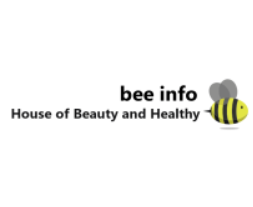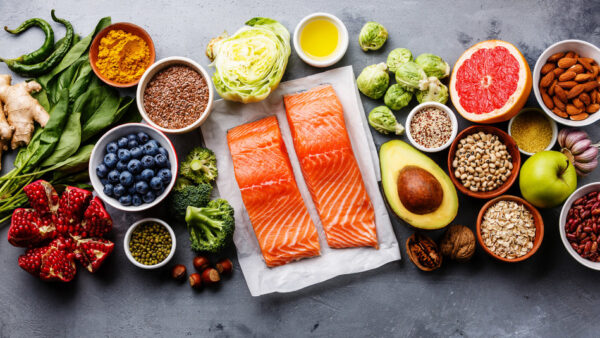In a world full of processed foods and fast food, it can be challenging to keep your gut healthy. The human gut is home to millions of bacteria, also known as the ‘microbiome.’ These invisible microorganisms help us digest food and protect against pathogens. Research shows that a “healthy” microbiome is linked to better overall health, stronger immune system, and a reduced risk of disease. However, our modern lifestyle has led to an imbalance in the gut flora. Today, many people suffer from conditions such as inflammatory bowel syndrome (iCVID), ulcerative colitis, and gastritis due to this change in balance. Thankfully, there are several foods that encourage growth of beneficial probiotic bacteria in the gut. Let’s take a look at some of them:
Eggs
Eggs are great sources of protein and B vitamins, which are essential for a healthy gut. They are also rich in iron, Selenium, and Zinc, which supports healthy immunity, mood, and cellular metabolism. To maintain a healthy gut, you should eat 2-3 eggs daily. Eggs are an excellent source of choline, a vitamin that helps regulate the gut and promote healthy intestinal cells. Studies indicate that a choline deficiency can lead to digestive issues, including intestinal hyperpermeability (Leaky gut). Another study suggests choline supplementation may reduce the risk of developing colorectal cancer (CRC). Eggs are also rich in iron, a mineral that helps regulate the metabolism of bacteria in the gut and reduce the risk of iCVID. Iron deficiency is one of the most common causes of an unhealthy gut and can lead to a weakened immune system.
Raw Cultured Dairy
Raw cultured dairy products, such as yogurt, kefir, and other fermented milk, are an excellent source of probiotics. These bacteria-rich foods boost the immune system and create an environment that is friendly to the gut flora. Yogurt, in particular, has been shown to alleviate symptoms of irritable bowel syndrome (IBS). A clinical study showed that people with IBS who ate fermented milk products daily had significantly less abdominal pain than those who did not. Fermented milk also helps improve the metabolism of iron, a mineral that supports healthy intestinal cells and a healthy immune system. While yogurt is a great food for gut health, commercial yogurts are loaded with sugar, preservatives, and other additives. If you want to reap the benefits of yogurt, buy a good quality, natural fermented milk product.
Dark Leafy Greens
Green leafy vegetables are rich in fiber, which promotes regular bowel movements and a healthy gut. They also contain antioxidants and vitamins that fight against free radicals and promote cellular health. Eating at least one serving of vegetables each day will ensure you get enough fiber. Dark leafy greens are particularly rich in vitamin K, which plays a crucial role in maintaining intestinal health. Studies have shown that vitamin K can reduce intestinal damage and repair intestinal cells. Eating greens also provides enough Vitamin A, which supports the immune system and a healthy gut.
Baked Beans
Beans, especially baked beans, are rich in fiber, which promotes regular bowel movements and a healthy gut. They also contain antioxidants and minerals that fight against free radicals and promote cellular health. Baked beans are also a good source of tryptophan, an amino acid that boosts serotonin levels and is essential for a healthy gut. Serotonin is an amino acid that regulates gut function, including secretion of digestive juices and blood flow to the digestive system. Apart from that, baked beans are rich in manganese, a mineral that supports cellular health and metabolism of fats and proteins.
Probiotic Supplements
If you’re not able to consume enough probiotic-rich foods, you can take probiotic supplements. Studies have shown that probiotic supplements reduce the symptoms of iCVID, particularly abdominal pain and bloating. They also increase Bifidobacterium and Lactobacillus, the two species of healthy gut bacteria. If you suffer from iCVID, speak to your doctor about taking probiotic supplements. This is especially important if you are taking antibiotics, which kill the good bacteria in your gut. Additionally, supplements like NAC that are high in antioxidants and mineral are another fantastic addition to promoting a healthy gut.
Conclusion
The human gut has more bacterial cells than human cells, and these microbes play a crucial role in our health. A healthy gut microbiome is linked to lower rates of obesity, Type 2 diabetes, and other chronic diseases. Bacteria in the gut break down food and fight against harmful pathogens, and a diet rich in probiotic foods is an excellent way to maintain gut health. For the best health benefits, make sure to eat a variety of vegetables and fruits, stay hydrated, and exercise regularly. You can also use natural cleaning products and wear a mask while you clean to prevent indoor air pollution.



